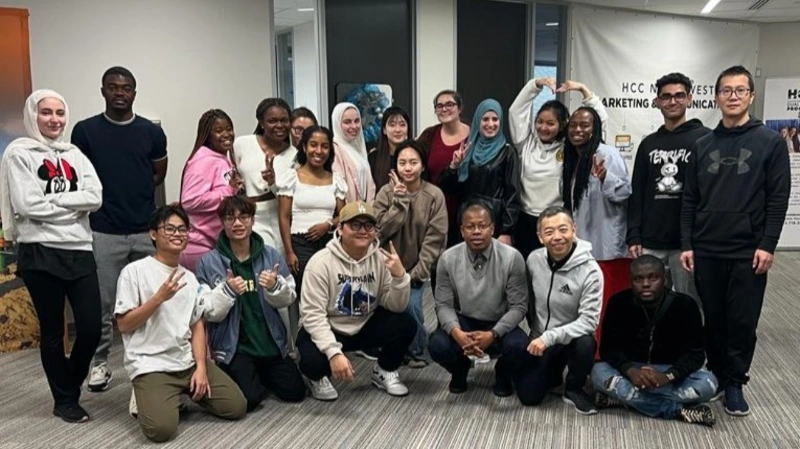How Many Student Organizations Does Harvard Have?


When I was in college pursuing my undergraduate degree, I found myself curious about the different student organizations my school had to offer. I dabbled in film clubs, book clubs, tutoring for creative writing, and even culinary organizations that ultimately expanded not just my knowledge, but my interests as a whole.
Luckily for me, my school offered a multitude of student organizations that allowed me to figure out what where passions really lie, as well as the opportunity to get to know myself better. Much like Harvard University.
Harvard University is not only one of the most prestigious institutions in the world, but it’s also known for its array of organizations and clubs in which students can get involved. From the arts to STEM, Harvard offers its students opportunities to expand their interests and skills through student organizations, and I’m here to tell you all about them.
This article explores:
- The number of student organizations available at Harvard
- Why extracurricular activities matter
- How to choose the right student organizations for you
Extracurriculars can make you stand out on your resume, allow you to try out potential fields of study, and make friends. So, whether you’re interested in the arts, athletics, or community service, Harvard College has a student organization for you. Now, let’s get into it!
Have Harvard dreams? Discover hundreds of exclusive scholarships at Bold.org today to start funding your education at the Ivy League of your dreams!
Harvard's Student Organizations
Harvard College is home to over 470 independent student organizations that offer a range of opportunities for student engagement, community, and participation in college life. These extracurriculars are just as important to the prestige of the Harvard College name as the school's academics.
Every September, Harvard holds a Student Organization fair for registered students where they can learn about what extracurriculars are offered on campus, as well as student life. These student organizations vary distinctly in their areas of focus. From performing arts to health and wellness groups, Harvard has an organization for you.
I know having hundreds of organization options can be overwhelming; however, the Harvard College Dean of Students Office is there to support and provide guidance for all recognized student organizations. Don’t hesitate to use them as a direct resource if you have any questions or need advice.
Recommended Reading: What is Harvard College?
Greek Life at Harvard
When it comes to sororities and fraternities, it’s important to know Harvard does not offer Greek life organizations. After the university banned them in the 1850s, Harvard has never brought them back. Though students have tried to create single-gender social clubs on campus, the school has since shut them down, stating that Greek life organizations and clubs promote discriminatory and exclusionary cultures across campus.
However, don’t let that discourage you from getting involved in other social clubs! Even though Harvard doesn’t recognize Greek life, students still have access to many more student organizations, like cultural organizations and pre-professional clubs, that are also integral parts of the Harvard experience.
Note: The Harvard Undergraduate Council plays a significant role in funding and supporting student organizations by promoting student life and community engagement on Harvard’s campus.
Applying to Harvard in the Fall? Learn how Harvard tuition works.

Most Popular Clubs at Harvard
With over 400 student organizations to choose from, it’s almost impossible to narrow them down to the “best” clubs on campus. However, some of the most popular organizations at Harvard are listed below.
Creative and Performing Arts
- The Harvard Ballet Company
- Harvard Undergraduate Drummers (HarvardTHUD)
- The River Charles Ensemble
- Harvard Glee Club
Publications and Media
- The Harvard Crimson
- The Harvard Lampoon
- The Harvard Advocate
- WHRB (Harvard Radio Station)
Political
- The Harvard Undergraduate Council
- The Harvard Institute of Politics
- The Harvard Project for Asian and International Relations
- Harvard Model Congress
Pre-Professional
- Harvard Undergraduate Women in Business
- Harvard Student Agencies
- Harvard Smart Woman Securities
- Harvard College Consulting Group
Remember: Harvard College does not recognize Greek Life organizations as student organizations, but they do exist without the Harvard affiliation.
Want Greek Life in your college experience? Learn more about sororities and fraternities today!
Fun Organizations vs Professional Societies
Now, when it comes to joining student organizations, as always, it’s important that you choose organizations that best fit your interests, passions, and goals. However, there are differences between the “fun” organizations and “professional” societies you may want to keep in mind.
Fun organizations, or social clubs, primarily focus on building social connections and creating a sense of exclusive community. These clubs are based on the “who you know," rather than the “what you know," which may feel elitist or cliquey at times.
On the other hand, professional societies focus on professional development, networking, and acquiring new skills. Students in professional organizations attend workshops, seminars and conferences that connect them with mentors and potential professional opportunities.
While I do believe both types of organizations can be beneficial, the question you have to ask yourself is: what organization(s) match your core values and can push you towards success?
The Student Organization Entry Process
Much like the initial admissions process to get into Harvard, to get into a student organization, you'll need to go beyond “just joining” by showing the same excellence and interest in your chosen student organization.
Here are some steps to the student organization entry process:
- Research: Always do your research into the organizations that pique your interests, no matter how many there may be.
- The Application: Some organizations require applications. This can include a polished, well-thought-out resume and letters of recommendation from people who can vouch for your character.
- Interviews: Some organizations may require interviews during the application process. To prepare, hold mock interviews with friends or peers and make sure to highlight your strengths, passions, and enthusiasm about joining the club.
- Networking: Build your connections even after you’ve submitted your application. Attend events for the organization and become familiar with its values, processes, and members.
- Be Prepared: Much like joining a Greek club, Harvard’s student organizations may want you to demonstrate your commitment to the club through different tasks or projects presented by the members.
Though entry processes vary amongst each organization, these are some steps you can expect when choosing clubs to join. Understanding the specific requirements of each organization is key to successful membership.
Why Extracurricular Activities Matter
I know extracurricular activities aren’t for everyone, but they play a vital role in shaping a student’s professional and personal development beyond the classroom. Trust me, as a graduate student, leaning into your passions and interests provides a balance you need to enjoy your Harvard College experience.
One of the biggest benefits of extracurriculars is learning how to develop soft skills. Let me explain. Extracurriculars teach students how to collaborate, manage their time, communicate effectively, and take initiative with their interests. These are essential life and career skills that aren’t always taught directly in school.
Extracurriculars also offer a chance for self-discovery. Your college years are formative years, and by exploring different interests, students can uncover hidden talents and passions that may influence their academic or career paths.
Of course, these activities also boost mental health and well-being. Like I said, they offer a balance between work and play, which can reduce stress. Being part of an organization provides a sense of belonging and purpose that can build a confidence you haven’t tapped into yet. Plus, the friendships and networks formed can last well past your years as an undergrad.

Choosing the Right Student Organization
Choosing the right student organization and extracurricular activity from a pool of a million choices can be overwhelming if you don’t have a strategy. Here are some things to consider when choosing how to make the most of your time outside the classroom:
- Focus on Passion and Interest: Think about what excites, intrigues, and motivates you. Extracurriculars should be enjoyable, not feel like another class, so ask yourself what your passions and areas of interest are. If you're unsure, start with a range of options that you can narrow down over time based on the activities you like most.
- Consider Your Goals: Ask yourself what you hope to gain from the activity. Is it personal growth, social engagement, or skill development? For instance, if you want to pursue a career in medicine, joining a health science club or volunteering at a hospital might align well with your goals. On the other hand, if you want to develop leadership skills, running for a student government position or organizing events could be more fitting.
- Get Out of Your Comfort Zone: Sometimes the best experiences come from trying something new. Join that improv group, attend a coding workshop, or volunteer for a cause you’ve never been involved in. Even if you don’t stick with it, you’ll learn something valuable about yourself.
Harvard’s commitment to student community engagement and social responsibility is reflected in its student organization offerings. Their student groups focus on social issues like public service, social justice, and environmental sustainability, among others. My advice? Try it all to find what fits you best!
Frequently Asked Questions About Student Organizations at Harvard
What is the most popular club at Harvard?
While there isn’t “one” most popular club or student organization at Harvard, there are a few organizations that cater to large student bodies. For instance, political clubs, pre-professional organizations, and affinity groups tend to have large groups of students who want to get involved in their causes.
How many student organizations does Harvard offer?
Harvard University offers registered students over 400 recognized student organizations. From student theater, media, and public relations to political and pre-professional interests, Harvard has a club for students with worldly interests. However, don’t expect to pledge for a fraternity or sorority. Harvard does not offer Greek life organizations, stating that Greek life organizations and single-gender clubs promote discriminatory and exclusionary cultures across campus.
How many secret societies are there at Harvard?
While Harvard College does not formally recognize secret societies, there are "final clubs" at Harvard, which are highly selective social groups that select members by invitation only. Not all of these "final clubs" may be recognized student organizations, and can often be exclusionary, elitist, and dependent on wealth or personal connections.
Visit Bold.org's student blog to stay up-to-date with all college-related topics, including new daily scholarships!